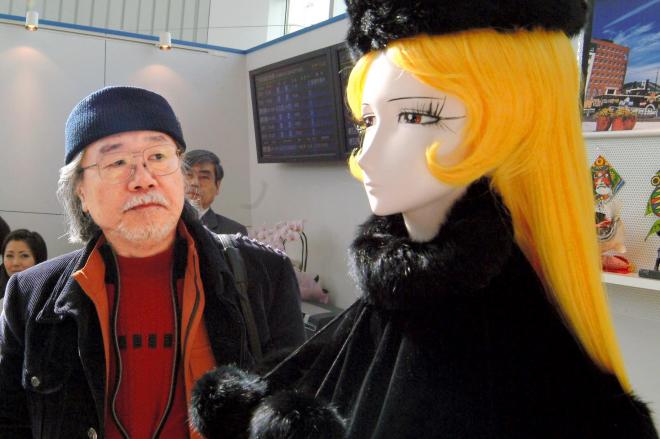
The news of Matsumoto Leiji’s death shocked me. While the passing of an 85-year-old shouldn’t be too surprising, it still makes me contemplate so many things. The number of creators who can trace their careers back to those early decades of the postwar manga industry is now vanishingly few. Matsumoto’s influence was monumental, with great works like Galaxy Express 999, Captain Harlock, and Space Battleship Yamato all under his belt. He was also instrumental in so much of what we now call the anime fandom, as his work on Space Battleship Yamato was the catalyst for fandoms in Japan, the United States, and elsewhere.
More than his broader artistic and historical significance, though, I feel Matsumoto’s legacy supporting me, as I might not have gone down my particular path of anime and manga fandom if I had never discovered his works. His messages of humanity and compassion sparked my curiosity, and helped me to look both forward and backwards.
The 1979 Galaxy Express 999 film is, bar none, my favorite anime ever. I reviewed it in the early days of Ogiue Maniax, but as I explained there, my history with it goes back further. I first watched it as part of a local film festival, at a time when my exposure to much older works was more limited. I can’t recall when exactly I saw it relative to other 70s anime, but I still remember to this day the sense of awe I felt coming out of the theater. Maetel remains one of my top 3 favorite female anime characters of all time, a figure whose presence in the story speaks to the beauty and soul of Galaxy Express 999. Nothing has toppled it in my heart even decades later.
An illustration by Matsumoto Leiji found at Comic Store Wonderland in Osaka
After seeing the film, I naturally began to notice more Matsumoto Leiji material, and since then, the worlds of his creations have been part of my world too. I bought a single volume of the Galaxy Express 999 manga in English in high school, and I would read it over and over. I would repeatedly consult Frederik Schodt’s Manga! Manga!, which included not only a biography of him but also a sample of one of his more obscure manga. Among my first figure purchases was a large Maetel, and I remember my excitement over finding the Queen Emeraldas OVAs and discovering Daft Punk through Interstella 5555.
I’ve reviewed Danguard A to celebrate the 50th anniversary of anime on television, sent Harlock to show “the pirate’s way” in Super Robot Wars T, and made lasting bonds thanks to The Galaxy Railways. I’ve also purchased that 1979 Galaxy Express 999 film over and over, whether it was happening upon a used Region 2 DVD at a Bookoff, getting the US DVD to show my support, or upgrading to the blu-ray so I could experience it in better quality than I ever thought possible. Actually, in that regard, the film festival I attended all those years ago showed a VHS version, so it really is like night and day.
An old drawing I made of Ogiue cosplaying as Maetel
In the long run, I think I would have still come to take a broader view of anime and manga. But as I currently am, Matsumoto Leiji’s art contributes no small part to the enthusiast I am today. As he leaves us, I wish his messages about the importance of remembering and cherishing our humanity continue to resonate in the years to come.
The Galaxy Express 999 will take you on a journey, a never-ending journey. A journey to the stars!